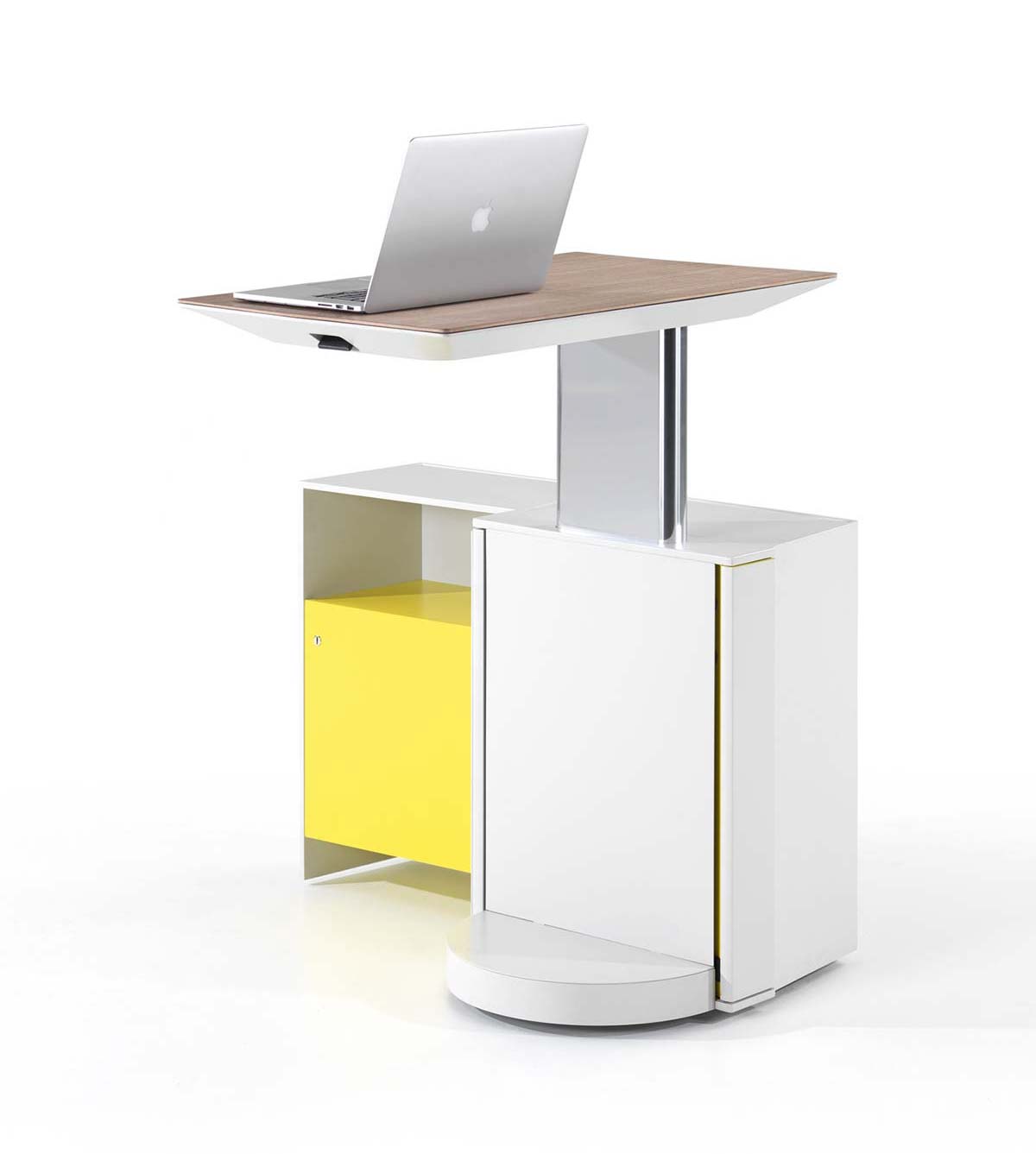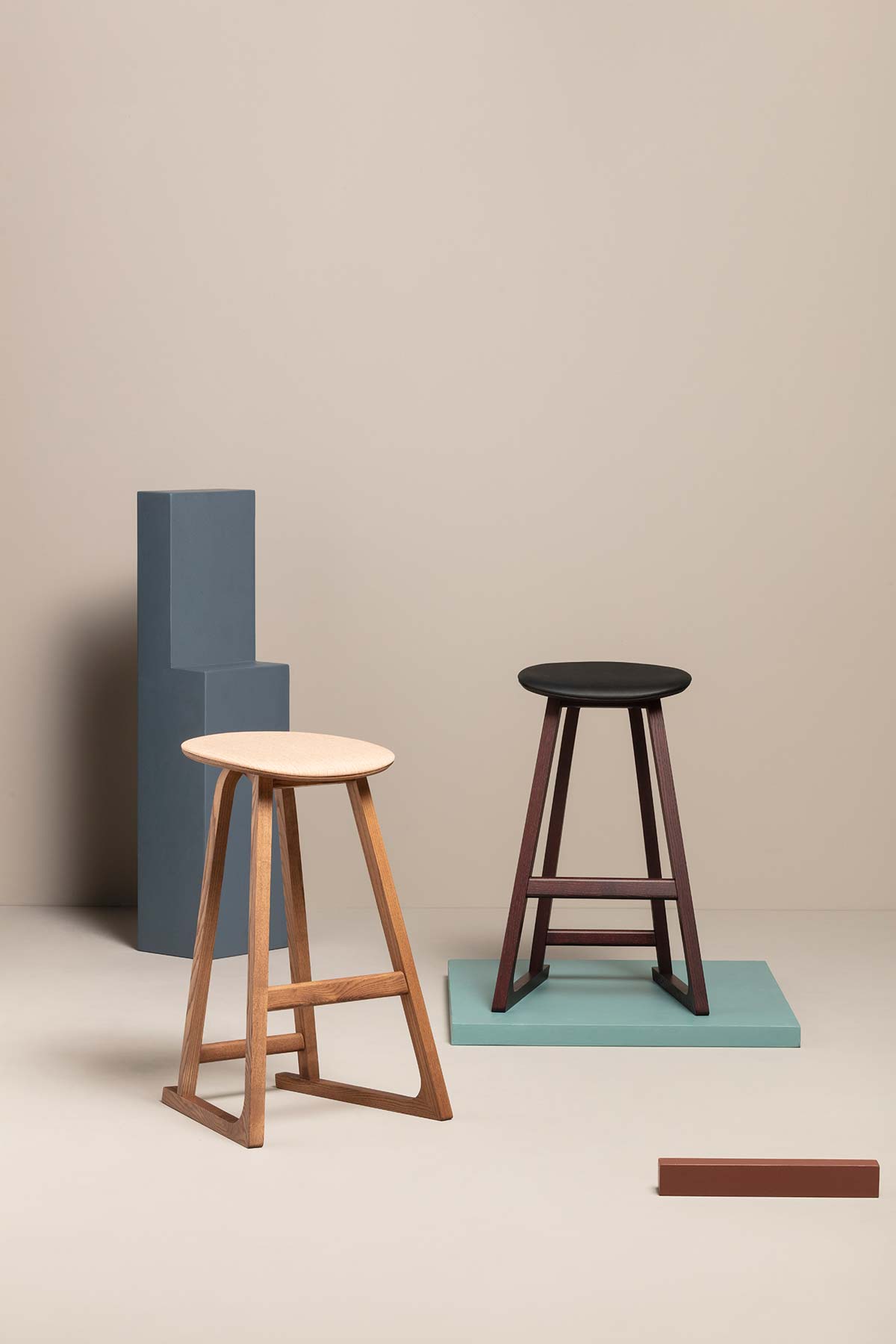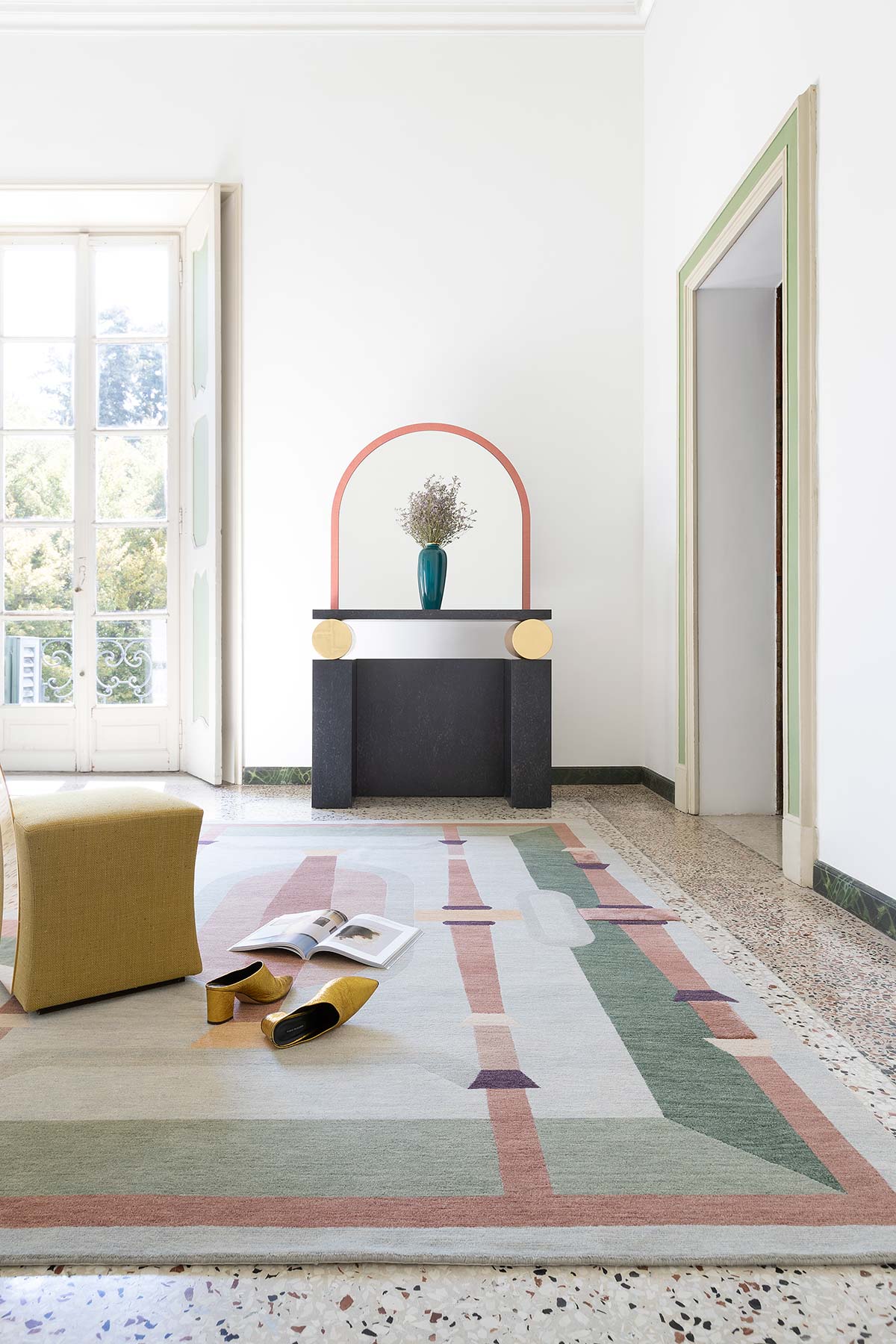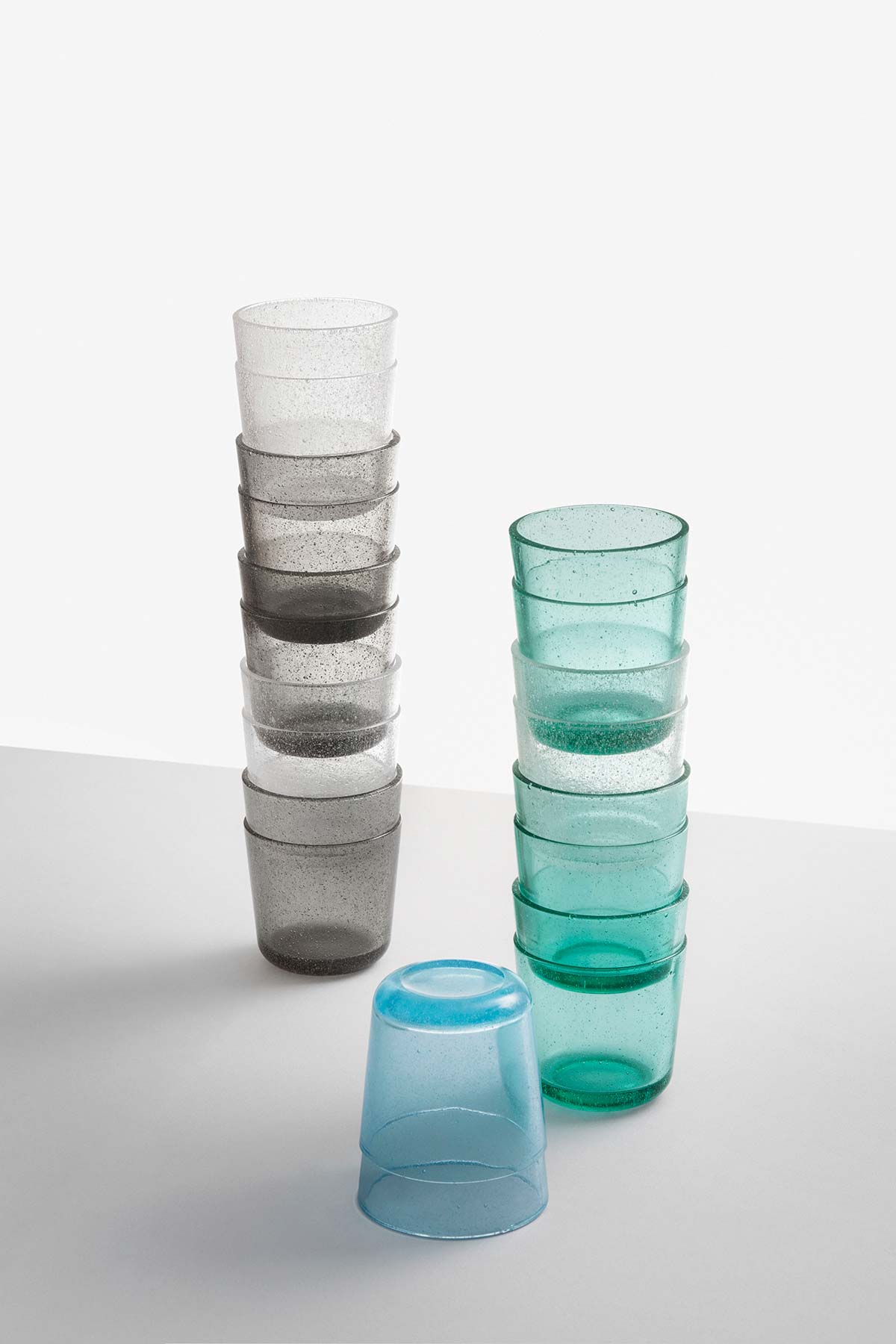Marco Maturo and Alessio Roscini, together, are Studio Klass. In 2009 the opened their practice in Milan, focusing on industrial design with a minimalist approach – in terms of formal language, where pure lines and geometric forms dominate – at the service of the user experience: paying attention to function and the user-product relationship. They also pursue this ethical and value-based relationship in their collaborations with companies (Fiam, CC-Tapis, Unifor, Living Divani, FontanaArte, just to name a few, striving to interpret its potential and to reveal its strong points. In this interview they tell us about their experience, their thoughts on digital innovation, design and much more. A cutaway view of a concrete, farsighted creative reality, and the products they create – keep your eyes on these two!
What is the foundation of your design approach?
In order to innovate, we think it is indispensable to understand all the potential of a company, its vision, intentions and production technologies; our goal is always to work on a new project by thinking about it specifically for a certain firm, considering its limits and its strong points. The innovation that interests us is often a crossover of types, functions or production methods.
Could you tell us about your professional growth, from the early days to the present, through the most representative products in your portfolio?
We went to the same university in Milan, and then in 2009 we founded Studio Klass. Among our first interesting projects, we can mention the collaboration with FIAM, starting in 2011, a company that believed in us from the outset, leading to a close relationship that has enabled us to develop multiple products. From our recent works, we are excited about the Touch Down Unit for UniFor, a mobile unit conceived as a temporary workstation for staff and professionals who do not have their own work position inside an office space. This is an innovative project, not only for the world of the office but also for the need for activities in the home, in a context of smart working; Touch Down Unit comes from careful research conducted by our studio for UniFor, which immediately believed in the project and decided to invest all of its extensive know-how for industrialization and development. The office sector is one of great potential, constantly changing, and together with UniFor we are already concentrating on how this field will evolve over the next few years, responding to new needs of the market.

Toch Down Unit by UniFor – Design Studio Klass
How much do such relationships become limiting for creativity? To what extent is it possible to ‘play’ with design?
It is possible only if you find the right “partner,” an entrepreneur capable of taking risks, with the desire to wager on new and innovative products; the history of Italian design has been written by enlightened businessmen and designers capable of taking industrial enterprise to the highest levels of the international market.

Sprint by Cantarutti – Design Studio Klass

Nastagio by CC-Tapis – Design Studio Klass – Photo © Beppe Brancato
What product have you never designed, although
you would like to?
A product that does not belong to any existing type, and that can establish a close relationship with everyday life. In the public transport sector, we are fascinated by the technical-functional aspects and the ethical overtones.
On the theme of interior design, in your view how will the relationship with the domestic environment and its furnishings change, after the situation of lockdown?
The space of the home will probably be boosted. People will realize that it is indispensable to have a space into which to retreat, to create a nest where we can feel good on our own and with our loved ones. New scenarios will open up, new types of products will probably be developed, or at least new aspects of existing products that were previously not taken into consideration.

Gap by Ichendorf – Design Studio Klass – Photo © Aberto Strada
Digital technology is revolutionizing everyday life, becoming essential in these months for companies and sector associations, in the promotion of alternatives to the traditional Milano Design Week. How much (and how) does the digital world influence you, or how much do you imagine it will influence your work in the future?
We are both part of a generation that from the outset has been able to interact with electronic devices, exploiting their potential, so we support the digital in all its aspects, for work and other purposes. In this period digital technology has emerged as an alternative that is indispensable for the survival of many companies, but nevertheless we believe that design is a synonym for quality and know-how, two important aspects that are not easy to convey by digital means. A sofa, a chair, a cabinet often narrate decades of improvements and history, details and continual innovation passing from generation to generation, and it is essential to be able to grasp these aspects in reality, in order to fully understand them.
You are a young couple, but you have over ten years of experience: what advice would you give young talents approaching this sector today?
To be honest with themselves, trying to understand if the discipline they are studying is effectively what they want to do for the rest of their lives. Often there is this damaging tendency to be obliged to do the work for which you were educated, seeing any change of direction as a failure. It is important to understand that this is not true; being a designer takes lots of sacrifice and patience, because it could take years before the gratifications start to appear. The world of work is increasingly specialized, so it is essential for young people to understand in which sector they want to operate. What we often notice is that very often young designers have no idea about what might be most suitable for their abilities and interests, so they leave decisions up to chance, and then regret having done so shortly thereafter.












